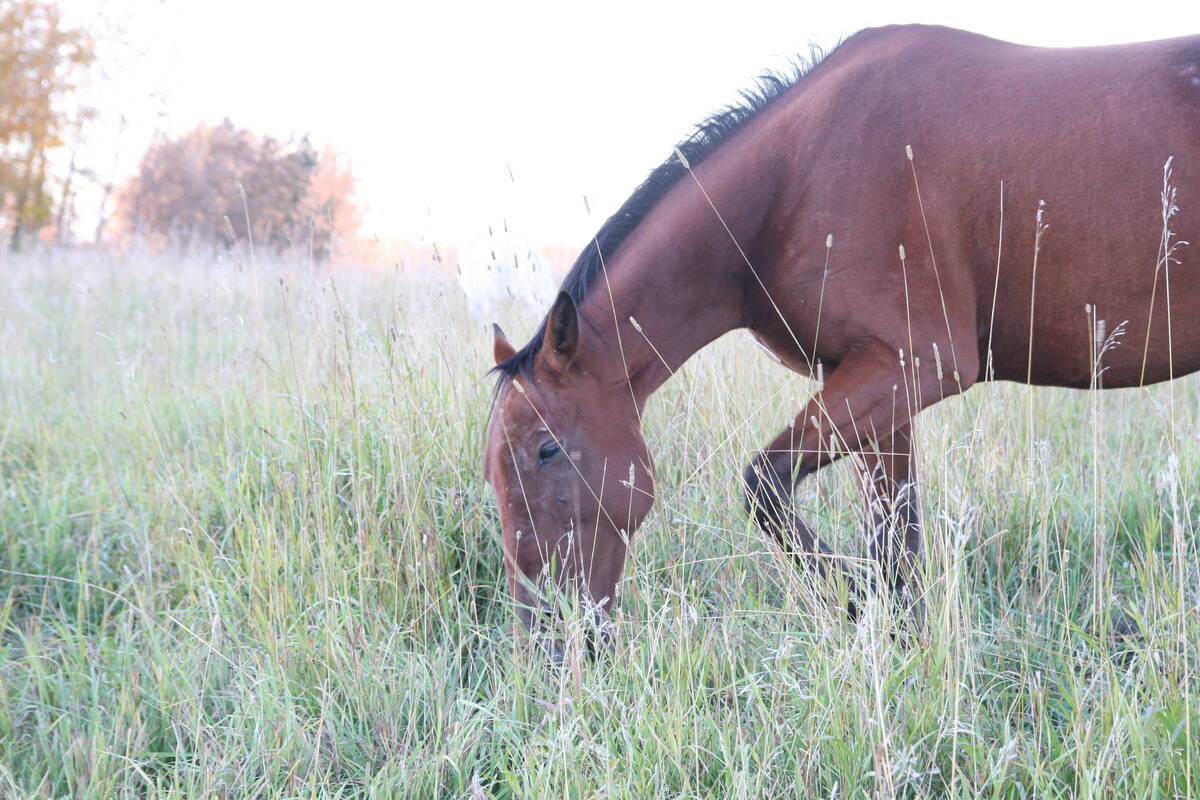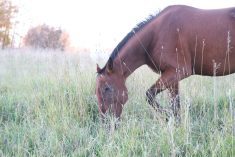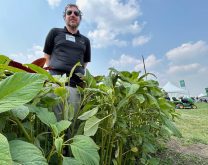“Conclusion, if you are hungry, thirsty, unkempt and bored you’ll likely have a long life.”
Joe Schwarcz says there’s so much conflicting information on food out there these days that it’s enough to drive you to drink.
That might be okay as long as it’s red wine to clean out the arteries. Until you learn that alcohol is a known cancer-causing agent. Two drinks a day has been shown to cause cancer. So what do you drink. Tap water? There are dangerous products in fluoride-treated water. Bottled water? There are some concerns about What can consumers do?
Read Also

Beware giving horses too much iron
Horses consuming too much iron through diet or well water risk health problems like laminitis. Mineral testing forage and water is good practice for owners.
“Conclusion, if you are hungry, thirsty, unkempt and bored you’ll likely have a long life,” the McGill University scientist told 300 participants at the annual Tiffin Conference Series on Lethbridge recently.
Schwarcz said science has reached the stage it can detect traces of potentially dangerous products in food in very minute quantities. For instance, three parts per billion of antimony in water in a plastic bottle has been detected. But that is equivalent to one second in 32,000 years.
Schwarcz said modern consumers scrutinize everything. Eating has become a clinical exercise.
“We should know the contents of our food, we are what we eat – scientific fact. We are a construction of what we eat.” Today, nutrition, it seems is a mixture of sense and nonsense. “The key is to get rid of the nonsense,” he said.
Schwarcz said people want simple solutions to complex problems. But that just doesn’t work except in the world of quackery. He criticizes the anti-meat lobby, with many books based on emotion, not science. “Peta is one of the most foul organizations I have run into,” he said. He acknowledges some abuse, like some of Peta’s pictures of hog and chicken farms with horrendous examples of animal treatment. But they were isolated examples, he said. “We should not put up with even one bad operator. We need a watchdog, but Peta is extreme.”
MEAT NOT PERFECT
On the other hand, from a strictly scientific basis, meat eating has its downside. The cow is not an efficient grain user, Schwarcz said. Humans eating the grain normally fed to cattle is more efficient than turning it into meat. But, he said, beef has great nutritional value, and is fun to eat.
It does have an impact on pesticide residues. Schwarcz said about 55 per cent of all pesticide residue the public is exposed to comes from meat products. About 23 per cent is from dairy and four to six per cent is from fruits and vegetables. “But one must know about residues,” he said. “Only the dose makes the poison.”
That is why science should be visited when discussing residues and how they can affect consumers. Misinformation is out there. “Say something often enough, it can become fact,” said Schwarcz.
He noted that most processed meats are very high in fat, and some contain recognized carcinogens that can cause cancer.
The way to go is to cut down on the meat portion and replace it with fruits and vegetables and try to keep the diet in moderation.
“We know a fair bit about what we should eat,” said Schwarcz. It should be based on plant materials. That will not sit well here or with me, but science says the greater the plant material in a diet, the greater chance to avoid health problems. Fruits are wonderful, and the more variety and colour we eat the better the antioxidants in the diet,” he said.
Schwarcz said meat contains lots of protein and vitamins, and adds pleasure to life. Many are so worried about dying they forget about living, he said. You get more pleasure from a steak than a tofu burger.
Schwarcz said life is full of risks. People must weigh risks with benefits. “In North America we have a chance to eat better than any time in history,” he said. “And then the unfortunate truth… we talk whether to worry about genetic modification or pesticides when a large portion of the world don’t have enough to eat. People are dying every few seconds somewhere in the world.”














